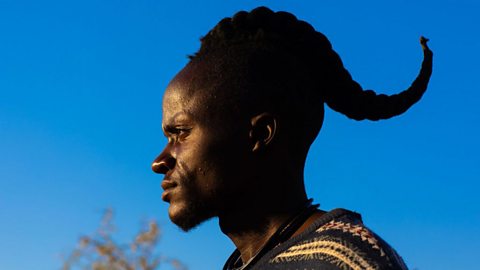When it comes to relationships between the older and younger generations, thereâs a lot we can learn from each other.
As part of the ±«Óătvâs Faith and Hope season, a new ±«Óătv One documentary called The Bradford Aunties follows an innovative project led by a group of Muslim women living in and around the city. Its aim? To give the Bradford Aunties an opportunity to pass on their knowledge, culture and traditions to the younger generations, and in turn, learn how to connect with the youth and their values.
But who are âThe Bradford Auntiesâ? In many South Asian communities, âauntiesâ is a term given to older women who are respected, offer guidance, play a prominent role in family affairs and who often dress in traditional clothing.
And according to the young people interviewed, they have a reputation for being a bit gossipy and judgemental. But is that really true?
Join ±«Óătv Bitesize as we discover what happened when young met old, and what these two generations learnt from each other.
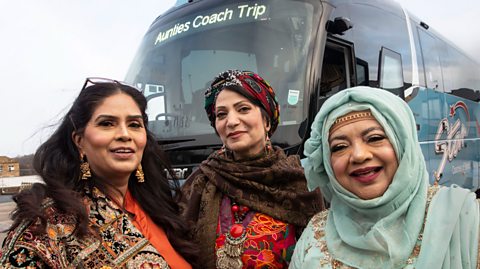
Language
Throughout the documentary, we see members of both generations seamlessly switch between speaking English and other languages, such as Urdu and Punjabi. However, the Aunties are still concerned that there is a communication gap between grandparents who donât speak English, and younger people who only speak English.
Auntie Ghazala is keen to encourage people like 16-year-old Zeena, who understands a lot of what is being said in her household, but would like to strengthen her skills. Ghazala moved to the UK from Pakistan following her marriage, and learnt to speak English when she became pregnant, so that she could communicate with medical professionals.
Sixteen-year-old Jess, who is of mixed heritage, has grown up in an English-speaking household, but wants to embrace both of her cultures. Jess hopes to learn how to recite a poem in her grandparentâs native Punjabi, in order to connect with her Indian mother, Amer. Ghazala translates the poem for her and guides her through the pronunciation, making a recording that Jess can listen back to practise. When Jess later successfully performs the poem, itâs a proud moment for her, Amer and Auntie Ghazala.
Amer says: "Because my Mum isn't here anymore, I think it's really nice that she's able to meet the Aunties as part of this project. Delving into her heritage is helping her to be confident and understand who she is, which is really precious."
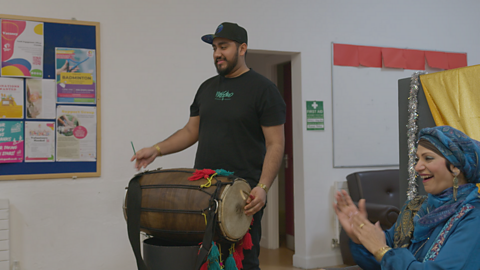
Music
The documentary culminates in the Bradford Aunties and the young people taking a coach trip together to Blackpool, but first, thereâs the all-important playlist to sort out.
Auntie Tahera explains that music plays a significant role in South Asian culture, with dancing, singing and poetry featuring at celebrations such as weddings and births. This would typically be traditional music, but the Aunties are concerned that young people would rather listen to English-language music, in genres such as rap and hip-hop.
However, they are surprised to learn that the youth havenât entirely abandoned tradition. When 22-year-old Rajan volunteers to perform a song in front of the group, he chooses to play Bhangra music on a dhol drum. Bhangra is a style of music which originated in the Punjab region of India and in its modern form, is a fusion of Western and Indian music. Other performances from the youth include traditional forms of dance.
Kainaat, 27, says: âBecause we live in the UK and speak English, weâre educated here, so automatically their judgement is that we donât want anything to do with our heritage, which is not true.â
Twenty-year-old Farha adds: âI think it is very important to stick to certain traditions, it kinda keeps you connected to your roots. I donât want for my children to not know where we originated from.â
Auntie Ghazala explained her shock by saying: âI was surprised because we thought, you know, youth, they donât know this music, our music, but they did.â
Sara, 16, attributes her generationâs knowledge of traditional music to being brought up by parents who listen to Bollywood and Pakistani music, saying that it had an impact.

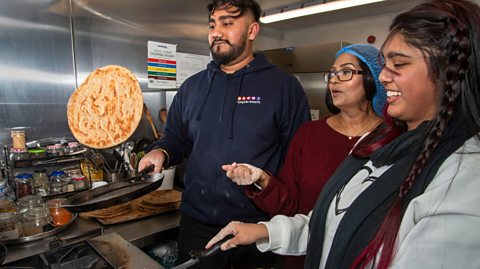
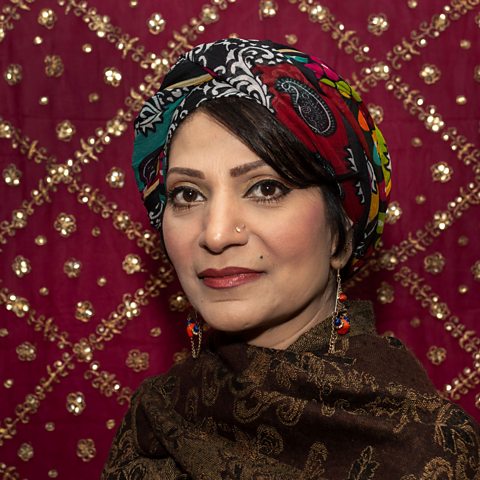
Careers
Over the course of the programme, we learn that for several of the Bradford Aunties, their careers didnât go as exactly as they planned.
Whilst teaching a sewing workshop, Auntie Rubina, known as Ruby, reveals that her dream was to work as a teacher. Married with kids by the time she was 18, she says âthat looking back, I would have been doing something different.â Ruby was able to work as a classroom assistant, so did work with children, but it was not the job she really wanted.
Medical student Farha develops a bond with Auntie Rubina (not to be confused with the aforementioned Ruby), who also wanted to be a doctor when she was younger. Following her marriage, Rubina was unable to continue her studies and itâs a turn of events that still causes her sadness today.
Farha admits: âAs a medical student, it makes me really sad to hear that you werenât able to do that, but thatâs why I think itâs kind of good that weâve gotten past that⊠getting married very young.â
She goes on to say: âI think itâs quite scary that if I was maybe born 50 years ago, I may not have been able to achieve my dreams, and it does make me really sad because I kind of wish that she also got to follow her passions when she was younger.â
When asked if sheâd like to go back to university and realise her dream now, Rubina's response was âIâm gonna just chill.â
The Bradford Aunties is on ±«Óătv One on 10 April and is also available on iPlayer
This article was published in April 2024

Millennials, baby boomers or Gen Z: Which one are you and what does it mean?
Youâve heard it all before: millennials are lazy and baby boomers are mega-rich. But what do these labels really mean?

Five words to explore Ramadan
Five words that will give you an understanding of what Ramadan means and how itâs marked by Muslim families.
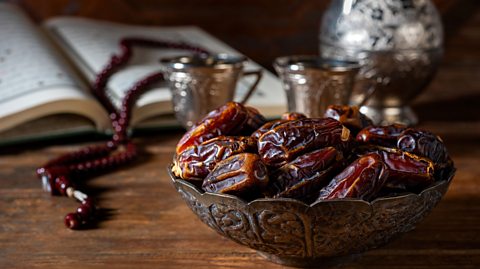
How you can spot someone is married in different cultures
Discover how different hairstyles and the placement of jewellery can give you a hint about someone's marital status.
